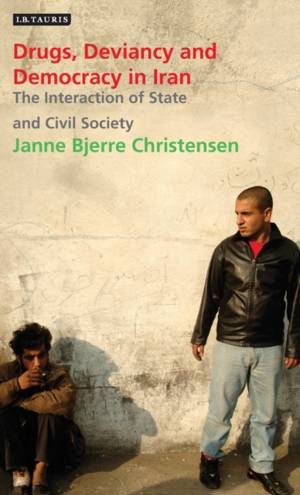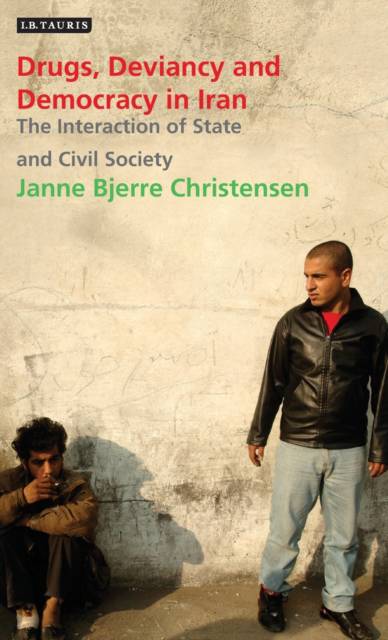
- Afhalen na 1 uur in een winkel met voorraad
- Gratis thuislevering in België vanaf € 30
- Ruim aanbod met 7 miljoen producten
- Afhalen na 1 uur in een winkel met voorraad
- Gratis thuislevering in België vanaf € 30
- Ruim aanbod met 7 miljoen producten
Zoeken
Drugs, Deviancy and Democracy in Iran
The Interaction of State and Civil Society
Janne Bjerre Christensen
€ 296,95
+ 593 punten
Omschrijving
In the aftermath of the Iranian Revolution, the government of the Islamic Republic initiated a stringent anti-drug campaign that included fining addicts, imprisonment, physical punishment and even the death penalty. Despite these measures, drug use was, and is still, commonplace. Based on her most recent fieldwork, Janne Bjerre Christensen explores the mounting problems of drug use in Iran, how treatment became legalized in 1998, how local NGOs offer methadone treatment in Tehran and face continuous political challenges in doing so, and how drug use is critically discussed in Iranian media and cinema. Drugs, Deviancy and Democracy in Iran is thus a unique account of Iran's recent social and political history, drawing important conclusions about the complexity of state power, and the growing impact of civil society, vital for all those interested in Iran's history, politics and society.
Specificaties
Betrokkenen
- Auteur(s):
- Uitgeverij:
Inhoud
- Aantal bladzijden:
- 304
- Taal:
- Engels
- Reeks:
- Reeksnummer:
- nr. 32
Eigenschappen
- Productcode (EAN):
- 9781848856394
- Verschijningsdatum:
- 13/09/2011
- Uitvoering:
- Hardcover
- Formaat:
- Genaaid
- Afmetingen:
- 145 mm x 218 mm
- Gewicht:
- 476 g

Alleen bij Standaard Boekhandel
+ 593 punten op je klantenkaart van Standaard Boekhandel
Beoordelingen
We publiceren alleen reviews die voldoen aan de voorwaarden voor reviews. Bekijk onze voorwaarden voor reviews.











